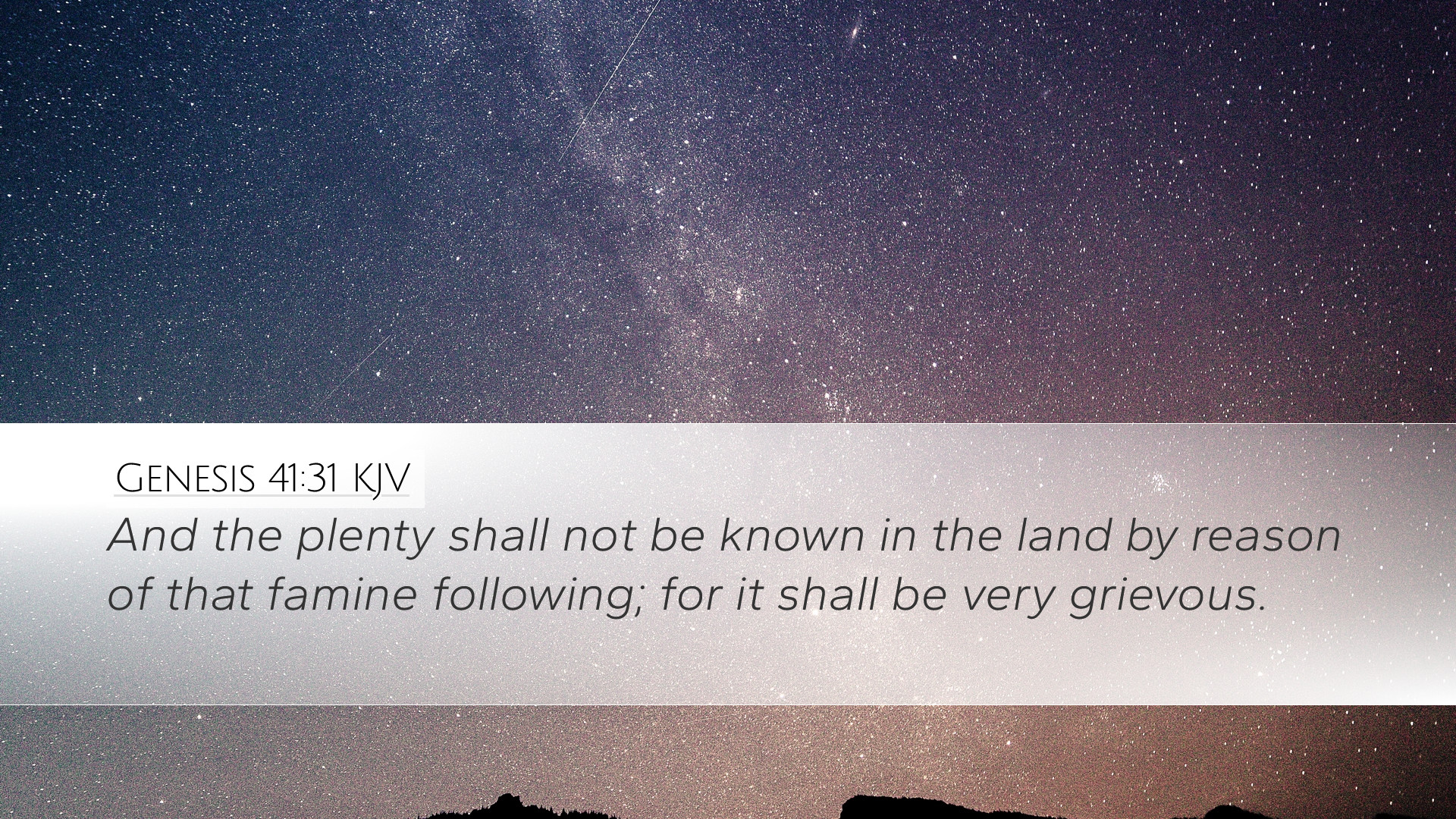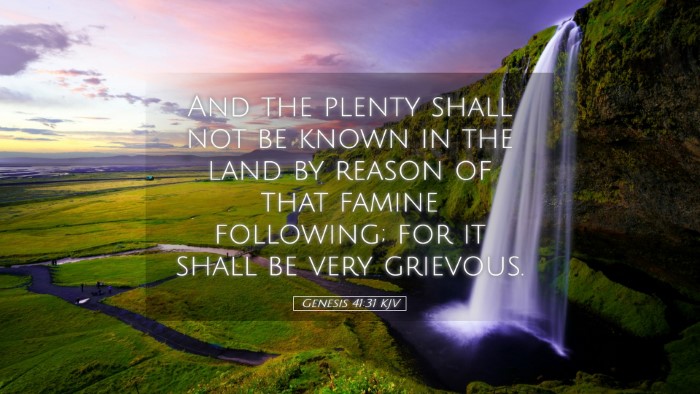Commentary on Genesis 41:31
Verse Reference: Genesis 41:31 – “And the plenty shall not be known in the land by reason of that famine following; for it shall be very grievous.”
Introduction
This verse occurs within the context of Joseph's interpretation of Pharaoh's dreams, which foretell seven years of plenty followed by seven years of famine. The significance of the verse lies in its revelation of the severity of the impending famine and its implications for the land of Egypt and beyond. The insights provided by the esteemed public domain commentaries of Matthew Henry, Albert Barnes, and Adam Clarke yield a profound understanding relevant to pastors, theologians, and scholars.
Contextual Understanding
To appreciate Genesis 41:31, one must consider the preceding verses where God grants Joseph the interpretation of Pharaoh's dreams. Joseph serves as the conduit of divine revelation, explaining the cyclical nature of abundance and scarcity. This verse encapsulates the critical transition from nourishment to deprivation, emphasizing the gravity of the situation.
Insights from Matthew Henry
Matthew Henry emphasizes the divine providence evident in Joseph's rise to power which positions him uniquely to manage the forthcoming crisis.
- The Nature of the Famine: Henry notes that the famine will overshadow the memory of plenty. The stark contrast between abundance and scarcity reveals God’s sovereignty in human affairs.
- The Purpose of Famine: He suggests that the famine serves God's purpose to bring Egypt closer to Him. Through this event, both Egyptians and Israel would realize their dependence on divine provision.
Insights from Albert Barnes
Albert Barnes provides a practical approach to the implications of this passage, focusing on the importance of preparation during times of abundance.
- Economic Lessons: Barnes points out that the biblical narrative illustrates a principle of preparedness. The seven years of plenty should not lead to complacency; rather, they should be a time for foresight.
- The Resilience of the Human Spirit: He also comments on the potential for human resilience in facing trials such as famine, suggesting that faithful leadership can mitigate hardships.
Insights from Adam Clarke
Adam Clarke delves into linguistics and cultural context to shed light on the text, making connections with contemporary issues of scarcity and resource management.
- The Psychological Impact of Famine: Clarke discusses how prolonged famine can affect societies, leading to desperation and despair. It serves as a reminder of the psychological ramifications of famine on a community's well-being.
- Covenantal Memory: He emphasizes the importance of remembering God's faithfulness during times of plenty, which serves as both a warning and an encouragement to seek divine guidance during want.
Applications for Pastors and Theologians
This passage holds several implications for spiritual leadership and theological reflection:
- Call to Action: Leaders are reminded to teach the importance of spiritual and physical preparedness in their congregations, drawing parallels between the ancient text and modern-day stewardship.
- Crisis as Opportunity: Recognizing that crises such as famine can be opportunities for spiritual awakening and corporate prayer, pastors can encourage their communities to seek God during difficult times.
- Divine Sovereignty: Understanding God's sovereignty allows believers to find peace in uncertainty, reinforcing faith in His providential care.
Conclusion
Genesis 41:31 serves as a profound reminder of the duality of abundance and scarcity and the importance of responding wisely to both. The comments of Henry, Barnes, and Clarke help elucidate these themes, providing a rich tapestry of insights that resonate with the challenges faced by leaders and believers today.


